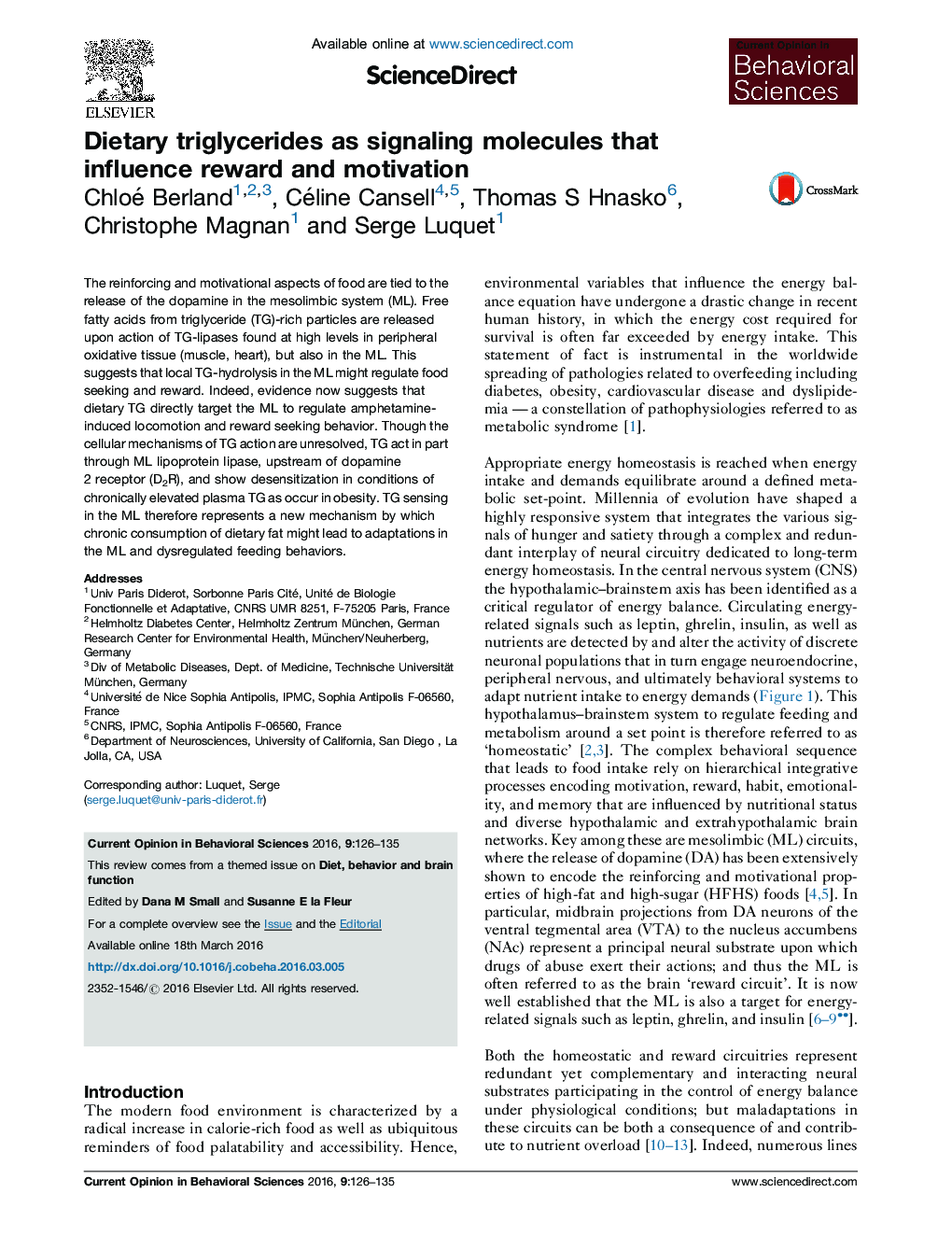| کد مقاله | کد نشریه | سال انتشار | مقاله انگلیسی | نسخه تمام متن |
|---|---|---|---|---|
| 6260615 | 1613081 | 2016 | 10 صفحه PDF | دانلود رایگان |
- The mesolimbic system (ML) expresses triglyceride (TG) lipases.
- Dietary TG can be hydrolyzed at the level of the ML.
- TG sensing in the ML regulate reward seeking behavior.
- Obesity-associated hypertriglyceridemia alters TG sensing.
The reinforcing and motivational aspects of food are tied to the release of the dopamine in the mesolimbic system (ML). Free fatty acids from triglyceride (TG)-rich particles are released upon action of TG-lipases found at high levels in peripheral oxidative tissue (muscle, heart), but also in the ML. This suggests that local TG-hydrolysis in the ML might regulate food seeking and reward. Indeed, evidence now suggests that dietary TG directly target the ML to regulate amphetamine-induced locomotion and reward seeking behavior. Though the cellular mechanisms of TG action are unresolved, TG act in part through ML lipoprotein lipase, upstream of dopamine 2 receptor (D2R), and show desensitization in conditions of chronically elevated plasma TG as occur in obesity. TG sensing in the ML therefore represents a new mechanism by which chronic consumption of dietary fat might lead to adaptations in the ML and dysregulated feeding behaviors.
Journal: Current Opinion in Behavioral Sciences - Volume 9, June 2016, Pages 126-135
